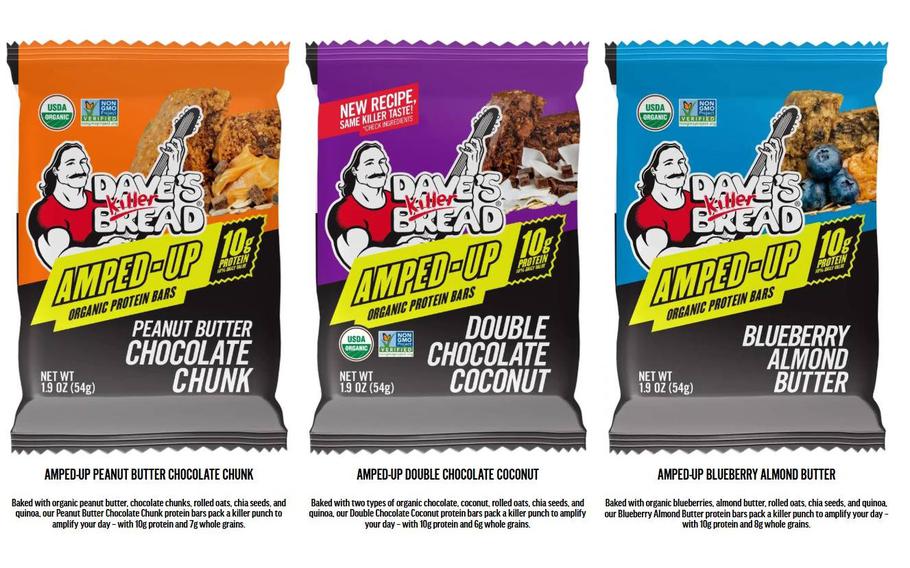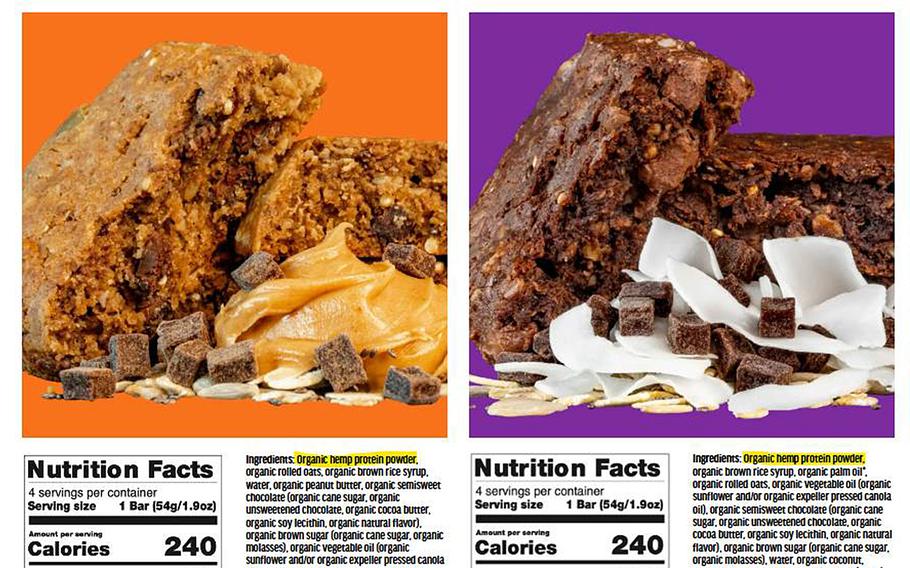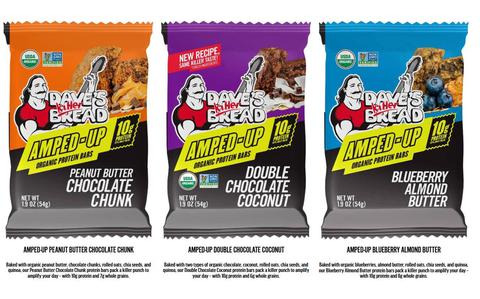
The U.S. Naval Support Activity Naples detachment in Gaeta, Italy, is warning sailors that Dave’s Killer Bread Amped-Up Organic Protein Bars contain hemp, a substance banned by the service, and that eating the popular protein bar could lead to a failed drug test. (Naval Support Activity Naples detachment Gaeta via Facebook)
NAPLES, Italy — A Navy detachment in Italy is warning sailors that eating a popular protein bar recently found at a Navy Exchange store could lead to a failed drug test and unwanted scrutiny.
Dave’s Killer Bread Amped-Up Organic Protein Bars contain hemp, a substance banned by the Navy, U.S. Naval Support Activity Naples detachment Gaeta said in a Facebook post Wednesday.
Service member use of hemp or cannabidiol products also is prohibited by the Army and Air Force.
The bars, which are made with hemp protein powder, recently were found for sale at the Navy Exchange and are commonly available at grocery stores in the U.S., the detachment said in the post, which included screenshots of the ingredient labels of three varieties of the bars.
The hemp plant is a cousin to marijuana. Hemp contains no more than 0.3% THC, the psychoactive ingredient in marijuana that gives users a high, according to Scientific American.
Cannabidiol, or CBD, is derived from hemp or manufactured in a laboratory. CBD does not cause a high by itself.

Dave’s Killer Bread Amped-Up Organic Protein Bars contain hemp, which is banned by Navy regulation. Eating the popular protein bars could lead to a failed drug test and unwanted scrutiny, the U.S. Naval Support Activity Naples detachment in Gaeta, Italy, is warning. (Naval Support Activity Naples detachment Gaeta via Facebook)
Navy regulations prohibit “the use of hemp products, including CBD, regardless of THC concentration,” the detachment said. “Carefully check labels.”
It wasn’t clear what exchange store referenced in the detachment’s post potentially was involved.
“The product in question — Dave’s Killer Bread ‘Amped-Up Protein Bars’ (hemp seed ingredient) — is not currently available for sale at any Navy Exchange location worldwide, including retail stores, vending machines and micro markets,” Josie Anderson, a spokeswoman for Navy Exchange Service Command, said in a statement on Friday.
She added that the exchange regularly reviews its product offerings to ensure compliance with Navy regulations and to support mission readiness and the health and safety of sailors.
Exchange officials in Naples confirmed that the bars were never stocked at exchange locations on the installation, Lt. j.g. Valentine Mulango, a base spokesman, said in a statement Friday.
“The post was made to amplify an earlier Navy-wide notice about the product,” Mulango said.
The Army & Air Force Exchange Service does not sell the bars, Chris Ward, a spokesman for the exchange, said in an email Friday.
In its post, the detachment at Gaeta advised sailors who may have consumed the bars to notify their chain of command and keep purchase receipts in case of a positive drug test.
“During the investigation process this will be taken into account,” the detachment said.
Earlier this year, the Defense Department recalled the bars because hemp is listed as the first ingredient, the Defense Commissary Agency said in a Jan. 13 statement.
The agency noted that it had advertised the recall to its stores, which were required to immediately remove the product from shelves.
The 2018 farm bill removed hemp from the federal Controlled Substances Act, clearing the way for its use in a variety of products for human use, according to the U.S. Food and Drug Administration.
Those products are regulated by the FDA, but the agency does not determine or certify the THC concentration of hemp products, such as CBD, the Navy said in a July 2020 directive.
That means “sailors and Marines cannot rely on the packaging and labeling of hemp products in determining whether the product contains THC concentrations that could cause a positive urinalysis result,” the Navy said.
The directive banned the use of hemp by sailors and Marines with limited exceptions, such as cannabinoid formulations approved as drugs by the FDA and prescribed by DOD health care providers or civilian medical professionals treating service members by referral.

